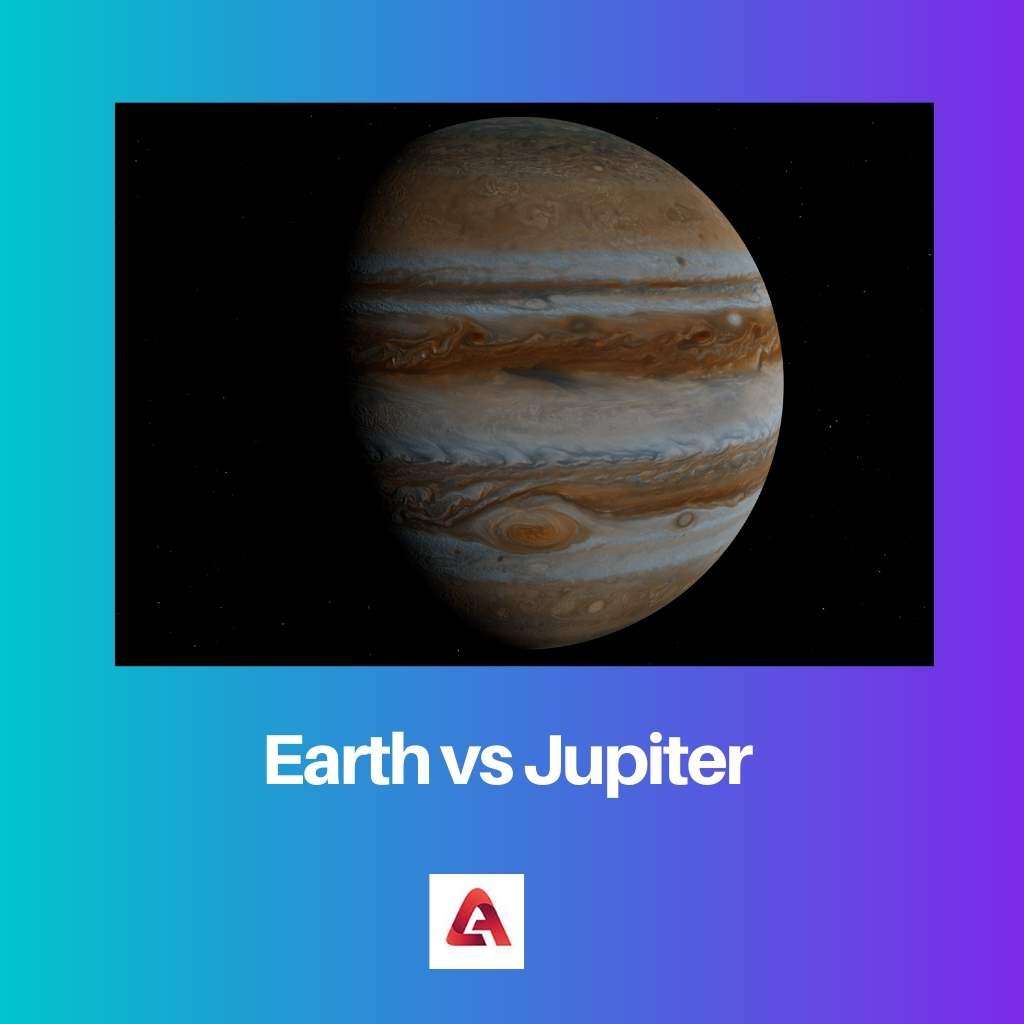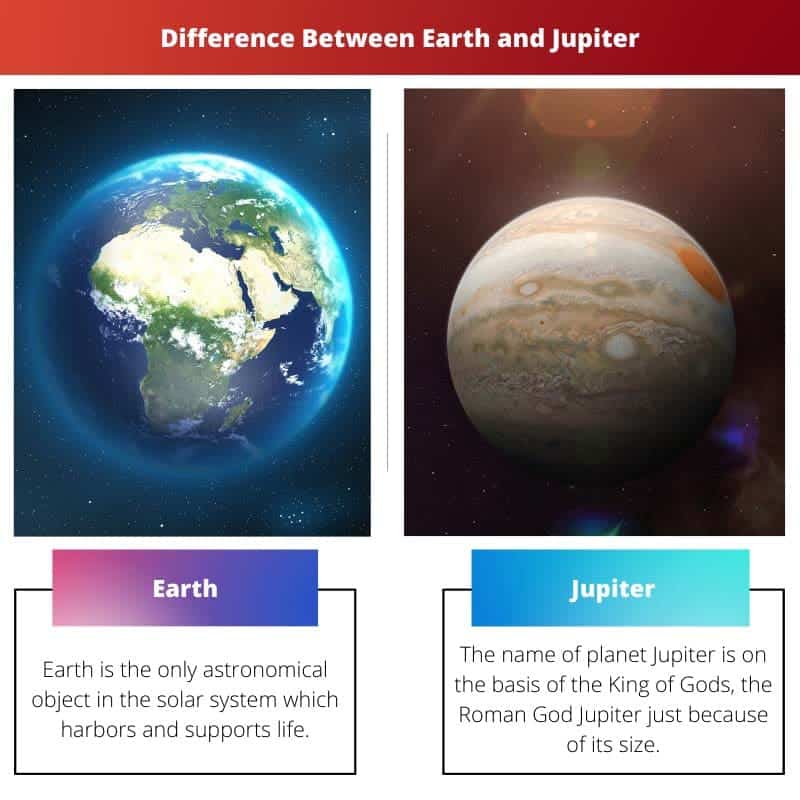The term “planet” simply means a celestial body that moves around a star in an elliptical orbit. In our solar system, there are several planets, stars, meteoroids, and other bodies.
Planets in our solar system are namely Venus, Mars, Saturn and many more. All the planets differ in many terms from each other.
Key Takeaways
- Earth is the third planet from the Sun with a solid, rocky surface, while Jupiter is the fifth planet and gas giant.
- Jupiter is the largest planet in the solar system, with a diameter about 11 times that of Earth.
- Earth supports diverse life forms, while Jupiter’s extreme conditions make it unlikely to harbor life as we know it.
Earth vs Jupiter
The difference between planet Earth and Jupiter is that from the sun, the Earth is the third planet, whereas Jupiter is the fifth planet. Earth is much lighter as compared to Jupiter. Earth is a terrestrial planet, while Jupiter is a Jovian planet. Earth has 24 hours a day because it rotates slowly; on the other hand, due to Jupiter’s fast rotation, it has 10 hours a day.

Planet Earth is placed between Venus and Mars. Earth is full of greenery and water. That’s why it is the only planet in our solar system which supports life.
According to Roman mythology, Jupiter was considered the greatest of the gods and one who ruled over other gods and human beings.
Comparison Table
| Parameters of Comparison | Earth | Jupiter |
|---|---|---|
| Distance from Sun (Au) | 1 | 5.2 |
| Surface temperature | 288K (average) | 165K (average) |
| Number of Moons | 1 | 80 |
| Atmosphere | Nitrogen, oxygen | Hydrogen, helium |
| Radius | 6,371 km | 69,911 km |
What is Earth?
Earth is the only astronomical object in the solar system which harbours and supports life. When it comes to its shape, it is nearly spherical.
Earth’s rigid outer layer of the lithosphere can be divided into several tectonic plates. Many millions of years ago, they migrated across the surface.
Earth’s surface consists of islands and continents, with an approximation of 29.2%. On the other hand, the rest, 70.8% of the earth is covered with water (seas, oceans, gulfs, lakes, and other water bodies).
Latitude is not the only factor that determines the climate of a region. Proximity to moderating oceans and elevation also determine the climate of a region.

What is Jupiter?
The name of the planet Jupiter is on the basis of the King of Gods, the Roman God Jupiter, just because of its size. Jupiter is a gas giant, and its mass is more than any other planet in the solar system.
Jupiter is essentially composed of hydrogen and helium. It is full of heavier elements at the rocky core, but it lacks a solid surface that is well-defined.
Jupiter is composed of liquid and gas rather than solid. Great Red Spot (a persistent anticyclonic storm) is its best-known feature which has existed since 1831.
The first spacecraft which visited Jupiter was Pioneer 10 in December 1973. Then Voyager flyby in 1979 and the Galileo orbiter in 1995 arrived at Jupiter.

Main Differences Between Earth and Jupiter
- The planet Earth has ample water and other factors, which in return support life and becomes a habitable planet. Jupiter does not support life and, thus, is a non-habitable planet.
- In terms of matter, Earth is a planet which is full of solid rocks. Whereas Jupiter is made up of liquid and gas, but it is considered a gaseous planet.




